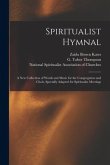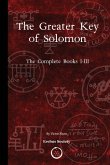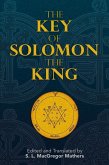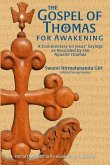"This great work of mystical depth, divine insight, and spiritual illumination is, like the Dead Sea Scrolls, one of the truly great spiritual and literary discoveries of the Twentieth Century. But unlike the Dead Sea Scrolls which were dramatically discovered by shepherds in a desert cave, the Odes were prosaically found in neglected manuscripts gathering dust on the shelves of London libraries. We do not know who wrote the Odes of Solomon. The title Odes or Ode of Solomon which is given in the Pistis Sophia and as a heading to the single Ode in the Bodmer Papyrus has led scholars to classify this work among the Pseudepigrapha-that is, among works falsely attributed to biblical characters or times. But as the word Shalom or Sh'lom in Hebrew or Syriac means "peace" or "rest," the title could be translated "The Odes of His Peace (or Rest)." This is especially fitting since the theme of rest is so prevalent in the Odes. Although the identity of the author of the Odes remains a mystery, the closeness of the tone and content of the Odes to the tone and content of the writings of St. John the Evangelist, together with St. Ignatius' familiarity with and use of the Odes (St. Ignatius was a disciple of St. John) suggest that the Odes could have grown up in the spiritual soil prepared by St. John and his disciples, in or around Antioch. Abbot George's commentary on this work illumines its practical value for seekers of spiritual attainment"--
Hinweis: Dieser Artikel kann nur an eine deutsche Lieferadresse ausgeliefert werden.
Hinweis: Dieser Artikel kann nur an eine deutsche Lieferadresse ausgeliefert werden.








